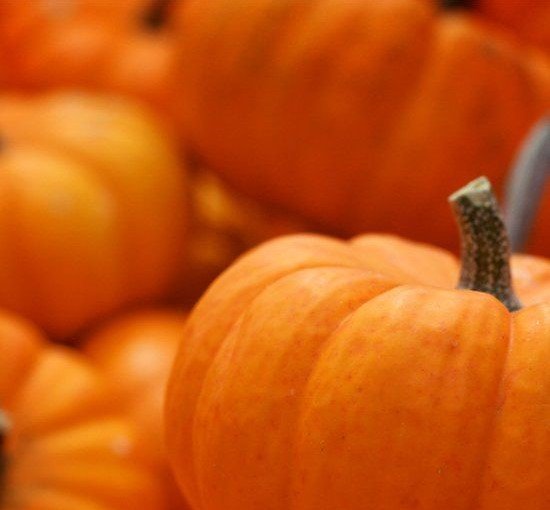
Revealed: 7 Reasons Why You Shouldn’t Just Eat Pumpkin at Halloween
Revealed: 7 reasons why you shouldn’t just eat pumpkin at Halloween
Thought pumpkin was just for Halloween? Wrong. Pumpkin is highly nutritious and a great seasonal autumn food, and can be enjoyed in a number of different ways – including in the much-famed pumpkin-spiced latte. Yum!
Pumpkin flesh, pumpkin seeds and pumpkin seed oil are all highly beneficial to your health for a host of different reasons. Nutrition experts give us the low-down on why this delicious autumnal vegetable in its different forms is so good for you.
1. It can help with weight loss
Pumpkin has a delicious sweet flavour like sweet potatoes, yet is much lower in calories and carbohydrates. “It’s really a win/win and a great swap if you’re trying to lose weight, or if you’re on a low-carb diet. It contains a good amount of fibre too – around 3 grams per one-cup serving – so will help keep you fuller for longer,” says London-based nutritionist Cassandra Barns.
2. It’s good for your skin
Pumpkin, along with vegetables such as carrots, squash and sweet potatoes, contains high levels of beta carotene and other carotenoids, which give them their lovely orange colour.
“Beta-carotene converts to vitamin A in our body, which is one of the most important nutrients for skin integrity (meaning skin that is firm resists damage and can heal quickly). Beta-carotene itself may also help to prevent free radical damage to our cells that can result in ageing, as it works as an antioxidant,” says Dr. Marilyn Glenville, author of Natural Alternatives to Sugar.
The orange vegetables are delicious as a basis for stews and soups in the winter, or roasted with other vegetables such as peppers, red onions and beetroot.
3. It’s full of natural antioxidants
Pumpkin seed oil contains very high levels of natural antioxidants and polyunsaturated fatty acids. Pumpkin seed oil is especially high in the gamma-tocopherol form of Vitamin E, which is a powerful antioxidant. For maximum health benefits, try an organic version such as toasted pumpkin seed oil.
4. It can help boost your mood
“Pumpkin seeds are one of our best sources of magnesium. This vital mineral is often called ‘nature’s tranquiliser’, as it’s associated with helping us feel calm and relaxed. For an easy and tasty snack, try pumpkin hummus”, says nutritionist Cassandra Barns.
5. It boosts your vision
“The vitamin A we can get from pumpkin flesh (converted in our body from beta-carotene) is also vital for vision. Vitamin A is also said to slow the decline of retinal function in those with certain degenerative eye diseases that can lead to blindness, according to researchers from Harvard. A cup of cubed pumpkin is an easy and tasty way to get your daily-recommended amount of vitamin A.” says Cassandra.
6. It’s good for your heart
The antioxidants in pumpkin can have a protective effect for the whole body, including our heart and blood vessels. The fibre in both pumpkin flesh and pumpkin seeds may help to keep cholesterol in check too. For maximum fibre, try an organic oatcake topped with roasted pumpkin chunks, or try sprinkling pumpkin seeds on top of your salad.
7. It helps your immune system
Cassandra Barns says: “Eating pumpkin can be a great way to help fend off winter bugs. Pumpkin flesh contains a decent amount of vitamin C – a critical immune system nutrient. And vitamin A is also vital for a healthy and balanced immune system. Make a big batch of warming pumpkin soup with ginger and spices for cold winter evenings.”


















































